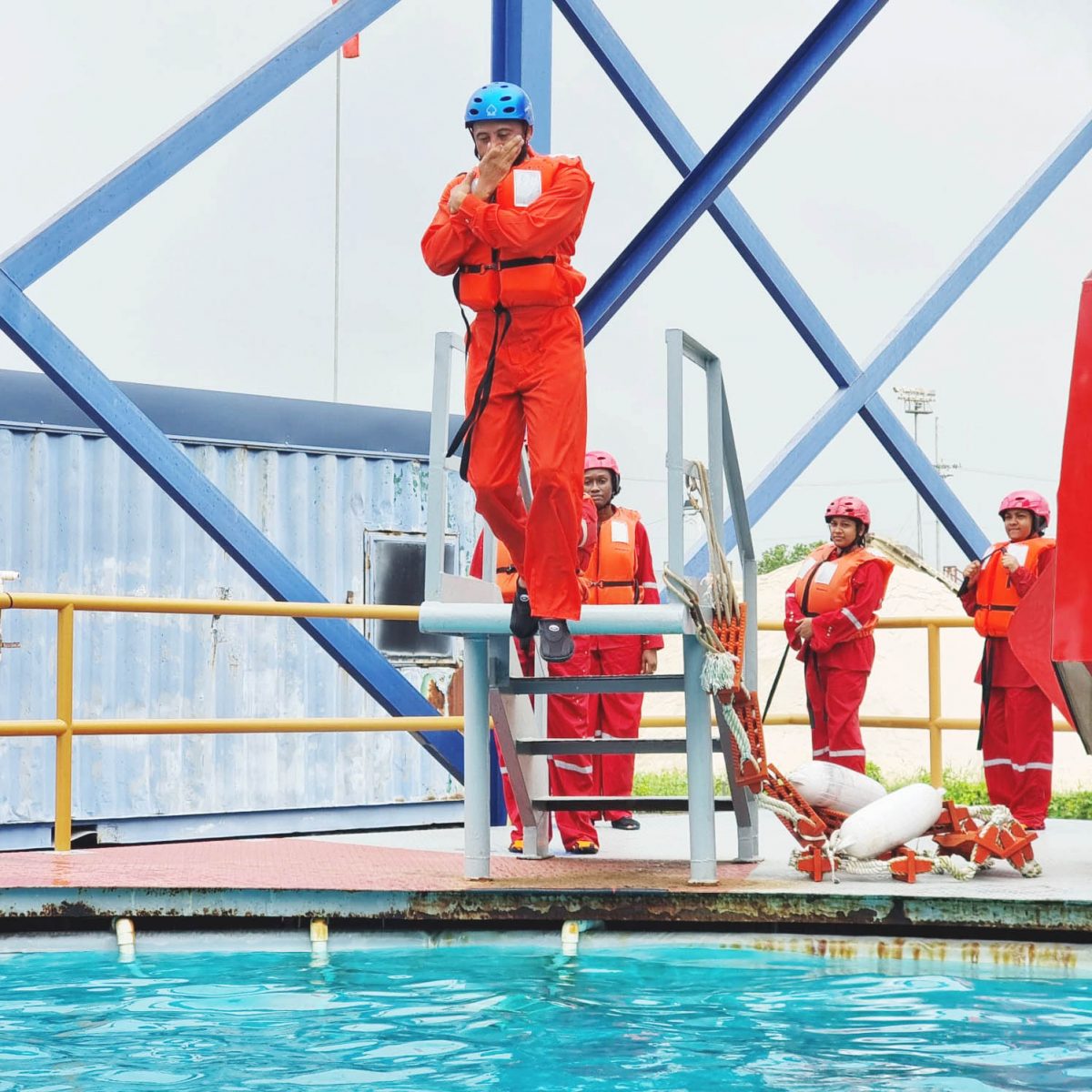Twenty-two officers of the Customs Petroleum Unit (CPU) of the Guyana Revenue Authority (GRA) have completed a Tropical Helicopter Underwater Egress Training (THUET) course designed to develop their knowledge of operating procedures in offshore safety and emergency response.
THUET is one of several escape simulation techniques for CPU and other officers who board any Floating Production Storage and Offloading (FPSO) vessel, the GRA explained in a press release issued on Wednesday.
An initial batch comprising seven (7) officers, including Deputy Commis-sioner of CPU Lancelot Wills, benefitted from the training in January of this year. In July a second batch comprising fifteen (15) officers underwent the training.
The training session was conducted at HHSL Safety Systems Limited in Trinidad and Tobago and is mandatory for those officers who perform customs controls and other monitoring functions on board oil exploration vessels. It encompassed emergency techniques such as donning an aviation life jacket, preparing for a helicopter ditching on water, evacuation through a nominated exit to an aviation life raft, or escaping through a window opening from a partially or fully submerged helicopter.
The CPU was established with the mandate to monitor and verify activities in the oil and gas sector for taxation purposes based on the Petroleum (Exploration and Produc-tion) Act and in keeping with the Production Shar-ing Agreement between the Guyana Government, Esso Exploration and Produc-tion Ltd, CNOOC Nexen Petroleum Ltd and Hess Guyana Exploration Ltd.
The release noted that Guyana is building capacity for training on local shores, with the imminent establishment of the country’s first oil and gas training centre by private developers. The facility, which is under construction at Lusignan, East Coast Demerara, will reduce the need for locals to travel overseas for accreditation in Basic Offshore Safety Induction and Emergency Training (BOSIET) with Compressed Air Breathing System (CA-EBS). Demand for these skills will increase as exploration intensifies and more vessels are established offshore.
Thus far, the CPU, and Petroleum Revenue Department, have benefited from capacity building in areas such as crude lifting and measurement, S&P Global Platts, case advice, boarding officers’ documentation, and oil and gas risk management.
Support for these endea-vours has come through partnership with the Inter-national Monetary Fund and the US Department of the Treasury’s Office of Technical Assistance, the release added.




